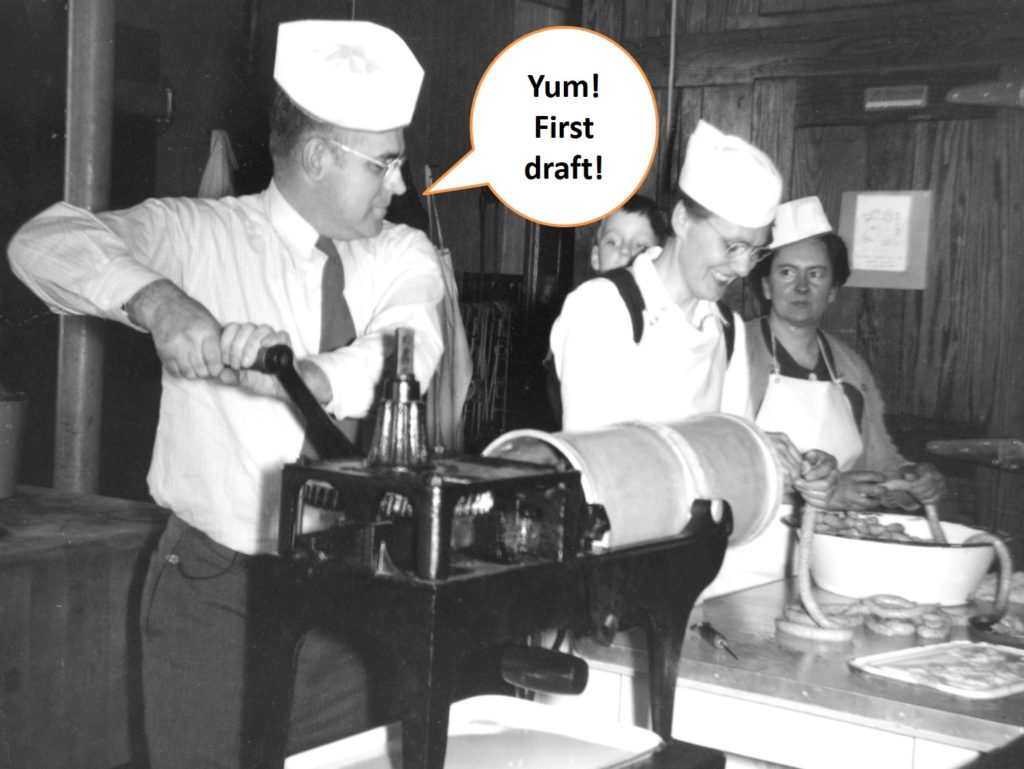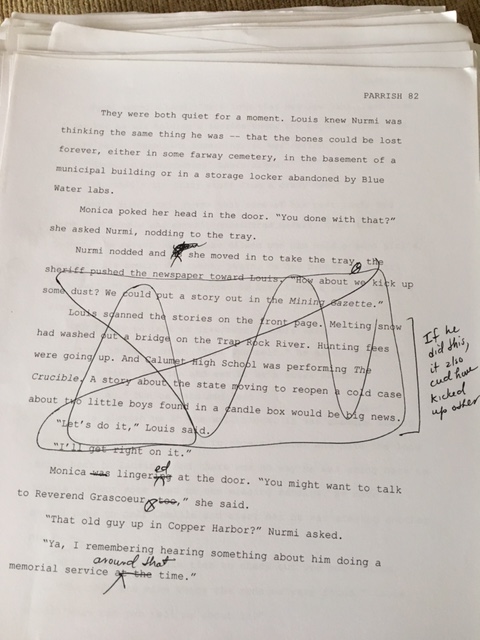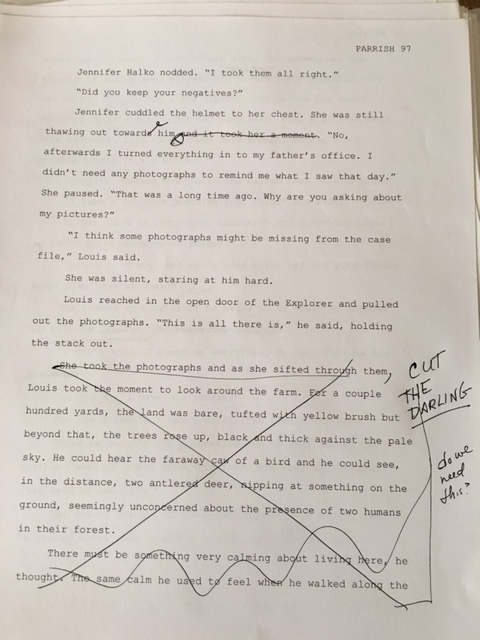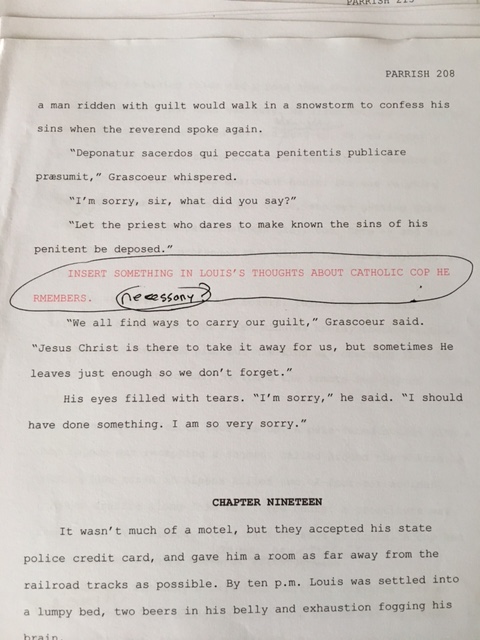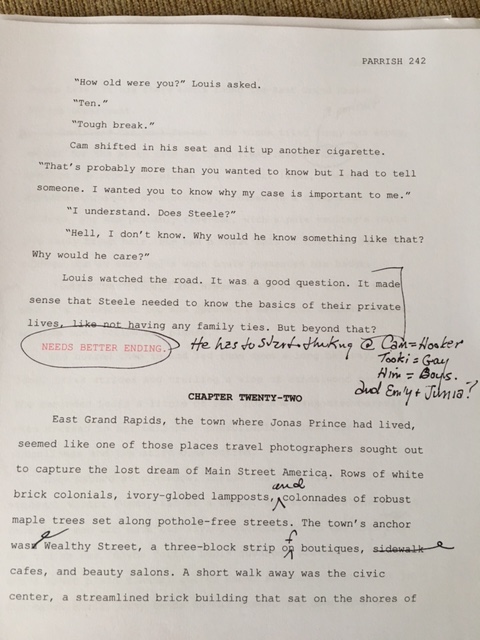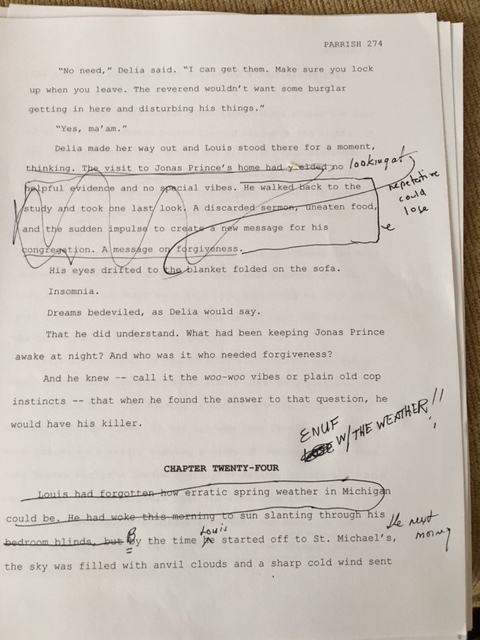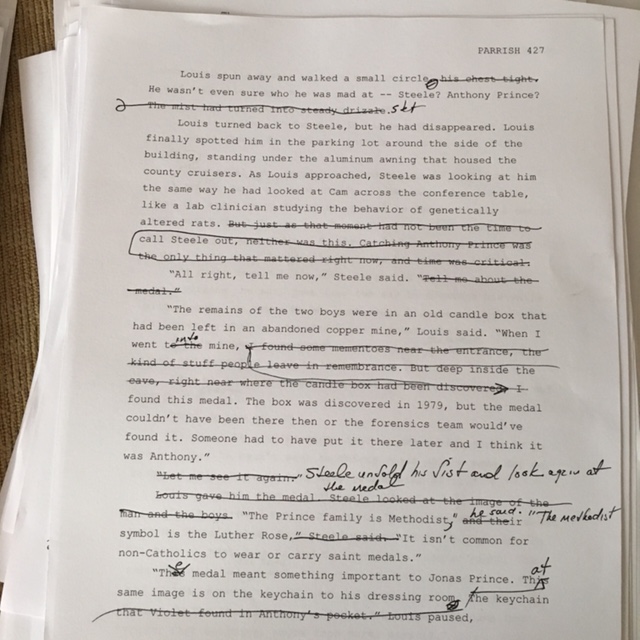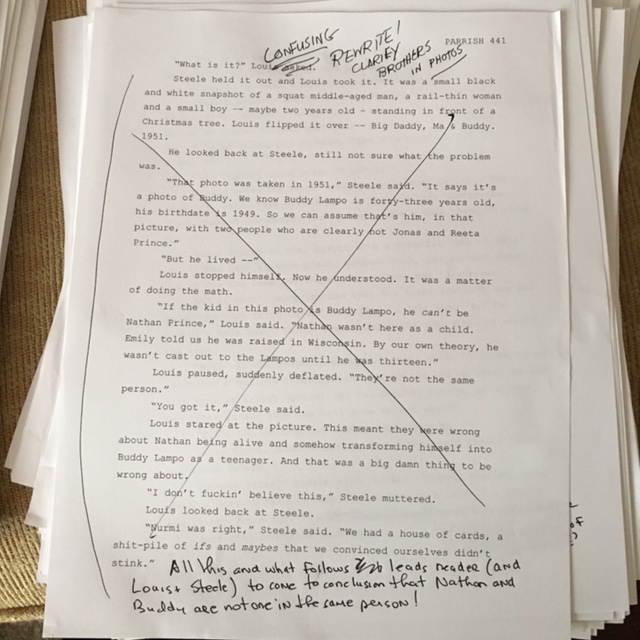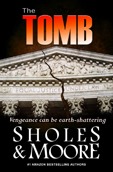
The proverbial brick wall.
Every writer has heard of writer’s block. Whether they believe in it or not, it’s been part of the conversation and lore around writing for a very long time. One of my favorite movies about fiction writing, Throw Momma From the Train, opens with Billy Crystal’s character blocked on the opening of his next novel. “The night was…moist,” he types. He crumbles up the paper and tries again, but remains stuck.
I believe writer’s block is either caused by genuinely not knowing where to begin or where the story goes next, or by fear—fear of exposing yourself, fear of failure, fear of simply screwing up, etc.
It turns out, for me at least, there’s also “revision block,” which I define as an inability to begin revising and/or being unable to finish a rewrite.
Perhaps you don’t know how to fix the issues you’ve found in your draft. Maybe you don’t know where to start a revision. Maybe you don’t feel like you are making any real progress in rewriting your novel, or the revision seems to go nowhere.
Usually when I revise a novel, I dive in and begin immediately rewriting. With the five books in my Empowered urban fantasy thriller series, revision was a fairly straight-forward process, mostly fixing continuity errors, making sure things were clear, and keeping the tension mounting.
The first novel in the series, Agent, did require a complete voice edit at the direction of my developmental editor, Mary Rosenblum. Her observation that my hero’s voice was completely wrong gave me revision block for all of two minutes, but I recognized the problem she had identified, and set out to deal with it. Over five weeks, I went through the novel word by word to get the first person narrator’s voice right.
It was time well spent.
The rest of the series, as well as my two stand alone novels, didn’t require nearly that level of revision. There was usually a point during each where I felt stymied, but I always worked out what the problem was and finished the revision.
Things became more tangled when I turned to revising my first mystery, A Shush Before Dying, in 2021. I knew the first draft had serious problems. It was my first mystery novel, after all. The mystery storyline was clearly not ready for prime time. The red herrings, the suspects with secrets, the narrative head-fakes, the planted clues, I needed to work all these out, as well as learn how to layer in them into the narrative with subtly and misdirection. It took time, lots of time.
Progress on the second draft slowed until, in late 2022, I realized I was stuck.
The solution: I wrote a new high-level outline of the book. I took out everything in the manuscript save for the cozy subplot, and then began writing a third draft, which came together quickly. After revising that draft, I sent it to my beta readers, who gave me feedback, which was largely very positive. The final edits were mostly of the continuity and clarity variety, along with of course copy edits.
Book Drop Dead, the second novel in the series, took seven months to draft. By that point my writing process for mysteries was to work out the killer’s “shadow story” and the murder, followed by mapping out the investigation, and sketching a cozy subplot, all of which go into a detailed outline. As I drafted, I came up with more ideas, connections, clues etc., which could cause me to repeatedly pause as I worked out those ideas and any problems which arose.
I began the revision shortly before my annual writer’s retreat, Rainforest, in February 2024. It was work, and involved a several new scenes, as well as some rejiggering of the storyline but came together fairly quickly It was also fun in an intense, up against a deadline sort of way. I finished it, sent it to my betas, who had some great feedback. I rewrote the book one last time and then had it copy edited, and proofed. It was published in June 2024.
The third Meg Booker mystery, Fine Me Deadly, turned out to be a different beast.
The book also took seven months to draft, again in a halting start-stop fashion. The storyline was complicated, to put it mildly.
Granted, mysteries are always complicated, at least for me, and involve a great deal of skull sweat. My first two mysteries had passed muster with readers, including a former library colleague who had been our branch’s “mystery maven,” who possessed a deep knowledge of the genre, but I’d also heard how complex each was.
As with Book Drop Dead, I reoutlined Fine Me Deadly in a rolling fashion while drafting and kept a novel journal where I brainstormed as needed, outlined new plot twists, etc. I finished the draft in mid-January, and decided, for the first time, to put the book aside for several weeks, and then come back to it with fresh eyes, advice many writers have discussed here at the Kill Zone.
When I returned to it while at Rainforest in late February of this year, I read through a printed out copy of the novel in two days, and wrote a detailed chapter-by-chapter outline of the drafted novel, as well as lots of margin and in line notes. I returned home, unfortunately with Covid, which interrupted the revision.
When I recovered, I realized the book needed a great deal of work. The plot had logic holes and worse, the mystery storyline itself didn’t work.
So, I began working on outlining the second draft. This stretched for months, also in a start-stop fashion.
It became obvious by late summer that I was blocked on the revision. So I spent more time trying to figure out why. I finally wrote a new, high-level “major plot points” outline, along with making some major changes to a few relationships, including my sleuth now having a friendship with the murder victim. I was all set to begin revising the actual manuscript.
I decided to try an idea suggested by author Matt Bell in his book on novel writing, Refuse to Be Done. The advice, he notes, is the one thing people never want to hear: retype the whole draft into a fresh document. The idea is you’ll make changes as you retype, with your new outline for the revised version at hand. I did this for the first couple of chapters, writing a whole new scene at the opening, and then another new couple of scenes as well as changing existing ones.
Then I hit a wall. Revision block returned in full force. Despite all my work on re-outlining the book during and after the draft, after the draft the book’s narrative still felt forced and my brain just couldn’t get going on writing new material.
Why did revision block return, and so powerfully? While I knew the storyline, it remained extremely complicated and very twisty, especially for a cozy mystery. There were many moving parts. Too many. True, as readers had noted, the first two novels in the series also had complex mysteries, but this one went much further, into a bewildering, intricate puzzle box, which exceeded my own ability to fix.
The solution would be to cut out a lot of the complication, focus more on the cozy. Really, rework the novel into something simpler.
However, I realized there was another reason I was blocked:
I had run out of creative energy for this novel.
I came to realize, for me at least, there’s a finite amount of creative energy to be spent on a book. I’d expended all of mine on Fine Me Deadly. I’d also created a storyline that sounded compelling in outline, but didn’t work out in practice. Yes, I had the elements of a mystery, including a cast of suspects, the head-fakes, secrets etc., but I’d put a lot of espionage elements into this cozy mystery, and created my own writer’s wilderness of mirrors adding further the complexity.
All of this caused me to lose interest and burn out on the book.
So, this week, after considerable thought and separate discussions with two author friends, I decided to put the book a drawer for the time being, and move on to a new project.
As with writer’s block, the first step in solving revision block is to figure out why. It could be something as simple as a plot hole that needs fixing, and a high-level outline will do the trick. It might be because you’re afraid to make changes, and getting past that fear will get things moving again.
Then again, it might be that taking a break and writing a different novel will give you the distance you need, and also the chance to rekindle your love for that particular book.
Certainly I need some time to clear my head. I’m now writing something different, in a different genre, and giving myself the chance to play with a simpler storyline.
After I finish the new novel, I’ll see where I’m at. It could be I’m done with Meg Booker. Or it could turn out that all I needed was to write a new, different book to refresh my creativity energy and desire in order to finally revise Fine Me Deadly. Time will tell.
Have you ever encountered revision block? If so, how did you get past it?

